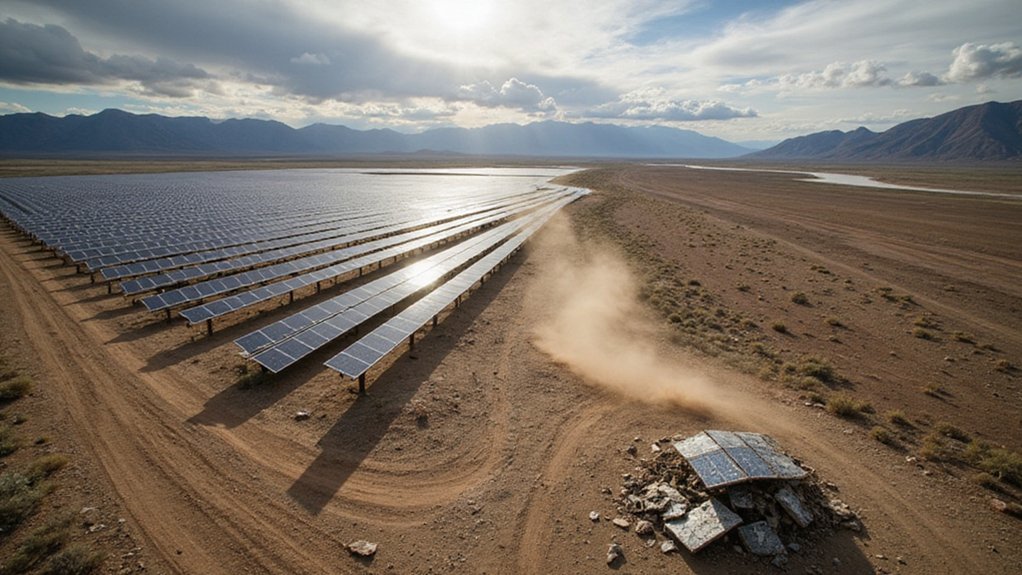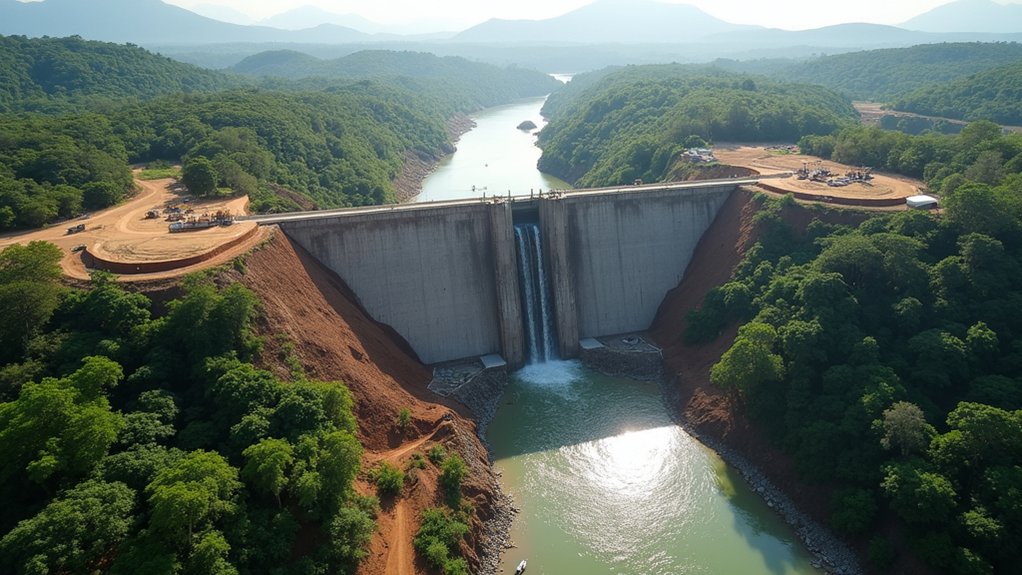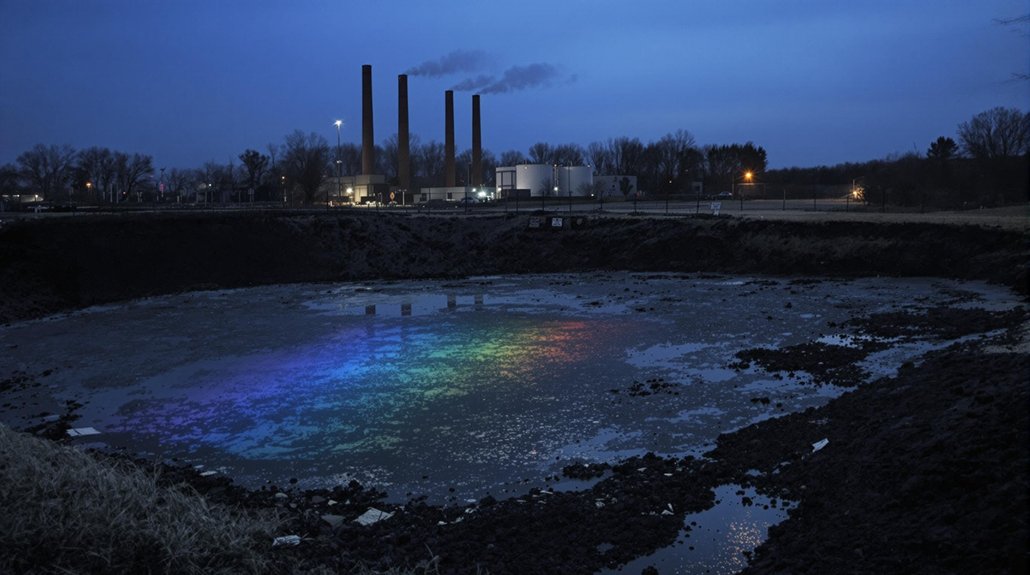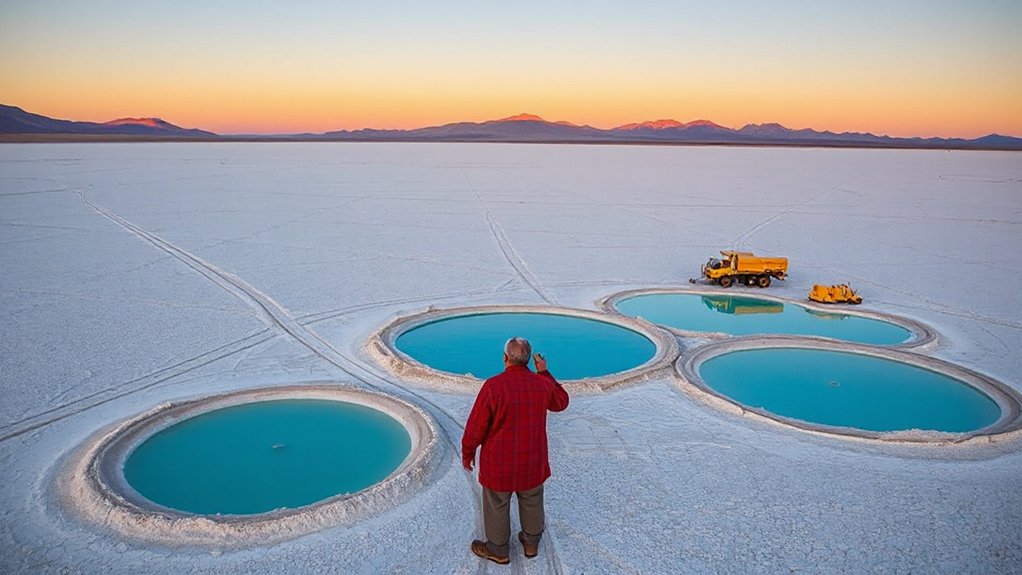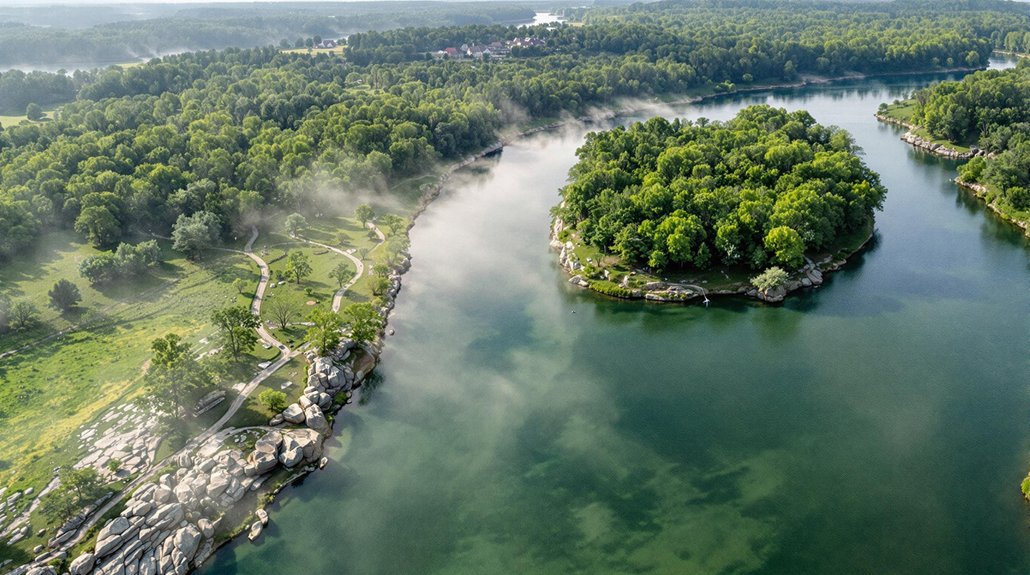Clean energy’s dark underbelly includes toxic mining practices, child labor in cobalt extraction, and massive waste issues. Solar panels leach chemicals; wind turbines create unrecyclable waste. Indigenous communities lose land while corporations profit. Green tech manufacturing? Still fossil-fuel dependent. Environmentalists conveniently ignore these uncomfortable truths while preaching climate salvation. Renewables aren’t the perfect solution they’re marketed as. The real environmental math isn’t quite so green or clean.
While the world champions renewable energy as our environmental savior, the reality behind “clean” power isn’t so spotless. Those shiny solar panels and majestic wind turbines come with a dirty secret – massive environmental damage that few green advocates want to acknowledge.
The green revolution’s gleaming facade conceals an inconvenient truth: “clean” energy comes with its own environmental price tag.
Lithium and cobalt mining devastate landscapes and drain water supplies. In Congo, children dig for cobalt in dangerous pits so we can feel good about our electric cars. Ironic, right?
The land requirements are staggering. Wind and solar farms gobble up vast tracts of habitat, fragmenting ecosystems while conventional power plants use a fraction of the space. Those rural communities and indigenous peoples? Just collateral damage in our rush to be “green.” Their land gets cleared, and suddenly it’s useless for farming or much else.
What happens when solar panels and wind turbines die? They become toxic waste nightmares. Turbine blades can’t be recycled effectively, so they’re dumped in landfills. Solar panels leach hazardous materials. Solar panel waste is expected to reach 315,000 metric tonnes by 2050. Batteries create even more pollution with their toxic metals and acids. Meanwhile, geothermal drilling releases poisonous gases. Clean energy? Not for the communities living next to these disposal sites.
The emissions math isn’t adding up either. Biomass can actually increase methane emissions. Manufacturing and transporting all this green tech requires – surprise! – fossil fuels. The oil and gas industry leaks 8x more methane than their stated targets, further complicating the transition to a cleaner future. The efficiency gains get eaten up by increased energy consumption. We’re chasing our tails.
Let’s talk about who’s really paying the price. Vulnerable populations bear the brunt of this new extractive economy. Supply chains remain opaque, hiding labor abuses. Opposition gets silenced, sometimes violently. It’s colonialism with a fresh coat of green paint.
Wind farms are increasingly problematic as they cause substantial bird and bat fatalities through collisions and air pressure changes, threatening ecological balance. None of this means we should abandon renewables. But pretending they’re perfect environmental saviors? That’s just swapping one form of destruction for another.
Maybe it’s time environmentalists had some uncomfortable conversations about the real cost of going green.
References
- https://www.hechayward.com/the-dark-side-of-renewable-energy/
- https://www.altenergymag.com/article/2015/08/the-dark-side-of-renewable-energy-negative-impacts-of-renewables-on-the-environment/20963/
- https://blogs.newschool.edu/milano/2023/01/19/the-dark-side-of-renewable-energies-electric-vehicles-and-lithium-mining-in-chile/
- https://hbr.org/2021/06/the-dark-side-of-solar-power
- https://earth.org/cobalt-mining/
